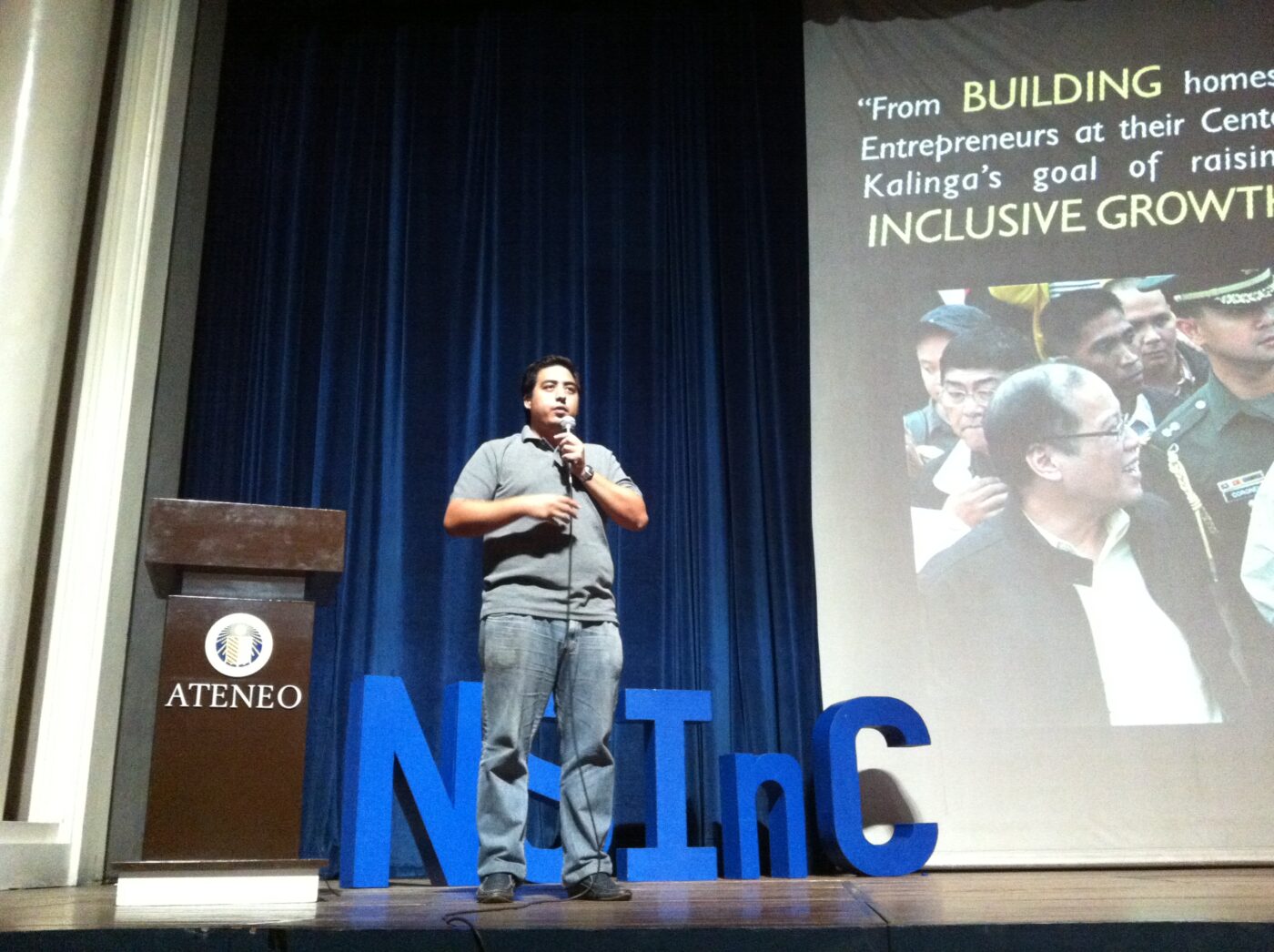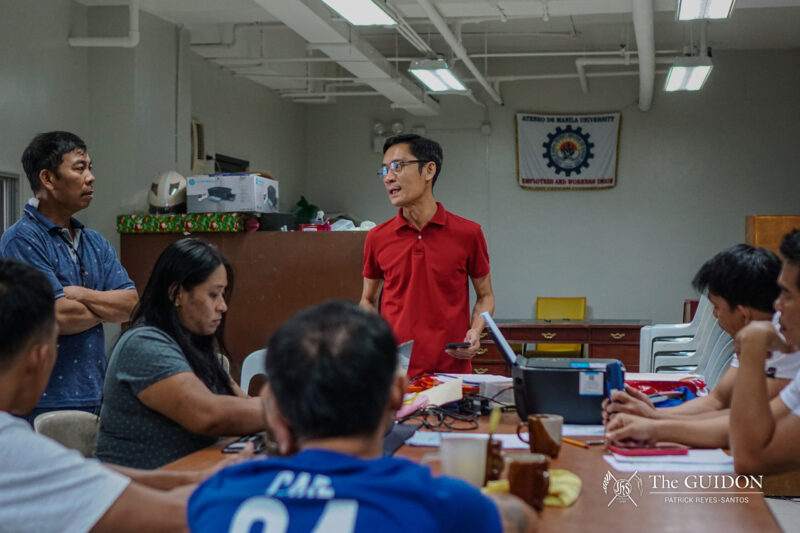THIS YEAR’S National Student-Investors’ Convention (NSinC), with the title, “Today’s Nation, Tomorrow’s Success,” emphasized the role of social responsibility in investing and finance.
NSinC is a project of the Ateneo Management Economics Organization (Meco) and was held at the Henry Lee-Irwin Theatre on November 22.
NSinC Project Executive Jaime Fernandez said that the convention aims to teach the youth how to invest and, in the past years, focused mostly on the technical aspect.
This year, however, he said that Meco wanted to take a more social approach to show the youth that “sometimes, it’s more than just the money.”
“We all want to become rich. What Shanon Khadka was telling me before was… ‘We also want to become rich, but then it is our goal to make as [many] people as rich with us,’” he said.
Khadka, a partner behind locally-sourced iced tea Bayani Brew, discussed social entrepreneurship during the convention.
Bayani Brew is part of the Gawad Kalinga Community Development Foundation, Incorporated (GK) Enchanted Farm that serves as an avenue for social entrepreneurship; GK is a movement that aims to alleviate poverty and build the nation.
Fernandez explained that the talks for this year were sequenced from knowing what one wants, managing one’s money, knowing about how money can grow, what can be done with it and to taking this knowledge “to the next step” through social entrepreneurship.
“Since we’re still students and learning the ropes to the real world… [It is] a critical time to really learn the possibilities of [our] money,” he added.
The speakers for NSinC included Khadka, fund manager Marvin Fausto, former investment banker Rose Fres-Fausto, Caylum Trading Institute President and Chief Executive Officer Edmund Lee and The Global Filipino Investors (TGFI) Founder Floi Wycoco.
Social business
Khadka described social entrepreneurship as way of doing business that “can do more good.”
Since Bayani Brew is sourced locally, Khadka said that they are able to provide the farmers with a sustainable source of income.
According to Khadka, the country needs more social entrepreneurs who will bridge “all the great resources that are here in the city and abroad, all our potential there [to] the [grassroots] communities.”
He stated that 98% of the country’s dairy is imported and that 4% of the milk comes from Singapore.
Khadka said that “it doesn’t make sense” why we are importing milk from Singapore when there is an abundance of cows in the country.
“And that’s why we’re poor… We’re poor because we leave the poor behind,” he said.
He claimed that poverty in the Philippines “is behavioral first, before it is economic,” and that the cultural, societal and behavioral issues should be primarily addressed.
“When you go to these GK communities, you realize their dreams are getting bigger. They don’t want to be carpenters, they don’t want to be tricycle drivers; they want to be lawyers, they want to be businessmen, they want to be doctors. And rightly so,” he said.
Literacy and investing
In his talk, Wycoco said that there is a need to educate Filipinos on financial literacy.
He narrated his personal story on overspending and coming close to bankruptcy which led him to start TGFI, a group aims to help people see the opportunity when they invest their money and manage their finances.
“You’ll have a better life, you don’t need to go overseas [and] you don’t need to find a better job,” he said.
Wycoco said that while the country is below the poverty line, the Philippines is not a poor country.
He pointed out that when there are sales, many Filipinos still flock to the malls. “Most Filipinos don’t give an importance on how to spend that money. [We have] to change that mindset.”
While he acknowledges that there is poverty, Wycoco said that it makes a difference when you teach communities and households how to save.
“It’s not [about] how much you earn, but how much you save and invest,” he said.
Wycoco said that the Philippines is eighth among 16 Asia-Pacific countries in terms of financial literacy.
“Pero parang hindi ramdam ‘no? If you want this na maramdaman (But it seems that we couldn’t feel it, right? If you want this to be felt), you go outside and apply [it], learn more and if you have enough knowledge, share that knowledge,” he said.







